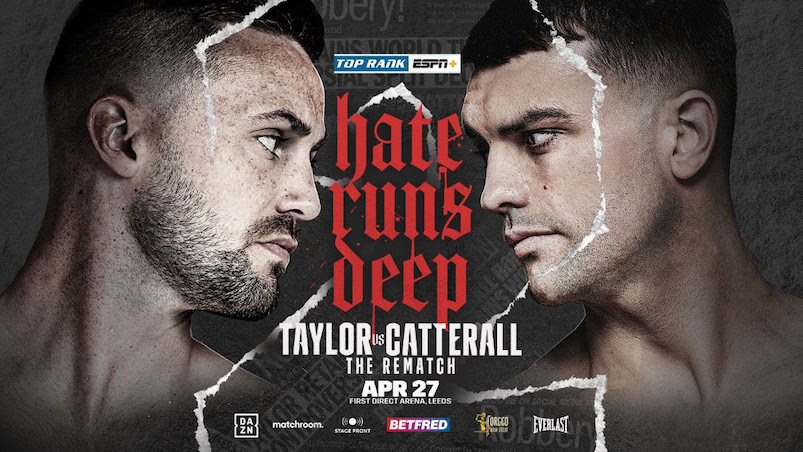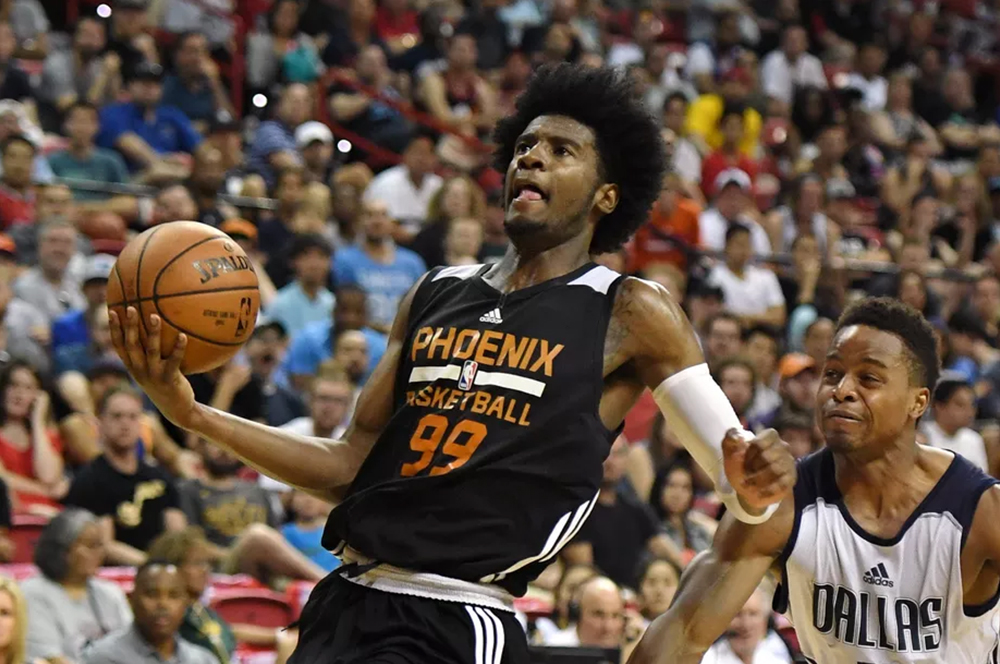The Suns’ kiddie core is unproven, but the organization has high hopes it can turn into a three-pronged foundation for long-term success.
LAS VEGAS — Ryan McDonough grew up in Hingham, Mass., just a half-hour outside of Boston. He went to Celtics games as a child and spent 10 years working in the franchise’s front office.
But McDonough can only count on one hand the number of times he’s heard the Boston crowd cheer an opposing player the way it did when Devin Booker scored 70 points in late March.
“Devin had actually tweaked his ankle in the game [against Brooklyn],” the Suns general manager told SB Nation during his stop in Las Vegas for Summer League basketball. “It was incredible because only a handful of guys have ever done that in NBA history under any circumstances, but to do it under those circumstances at 20 years old was unbelievable.”
Booker has emerged as an all-world scorer, a likely future All-Star and a beacon of hope for a Suns team that hasn’t made the playoffs this decade. He’s among an illustrious group of NBA legends, including Kobe Bryant, LeBron James, Kevin Durant, and Carmelo Anthony, to score more than 2,700 points before his 21st birthday.
But the remainder of Phoenix’s green roster is like box of chocolates — you don’t know what you’re going to get from it ... yet. The Suns have eight players between the ages of 19 and 23, the second-most in the league behind the 76ers. Save for Booker, none of those kids has emerged as bonafide future stars in this league. As the West continues to get stronger, Phoenix projects to be at the bottom of the barrel again.
This is the state of the Phoenix Suns entering the 2017-18 season, and they’re OK with it. Rather than chase big-name veterans as they did in summers past, the Suns sat out free agency to focus on their young core. Conversations with McDonough and head coach Earl Watson make one thing clear: The Suns aren’t rushing the process.
"We think and hope that we'll grow step-by-step over the next couple of years," McDonough said. "Maybe at some point it isn't step-by-step, the switch flicks and we're pretty good overnight. And if that's the case, I think with the age of our group and the contractual situation of our group, we have a chance be really good for a long time."
Marquese Chriss is standing in the hallway between the floor and a makeshift Summer League locker room in the cozy Cox Pavilion, which seats just 2,500 people. This isn’t the same lanky rookie who entered the league a year ago.
The 20-year-old power forward, drafted No. 8 last season, has put on 15 to 20 pounds of muscle during the offseason. McDonough and Watson agree: Phoenix wants to define Chriss’s muscle. He’s still growing into his body, all while battling much more experienced NBA big men on a nightly basis as a rookie starter.
That trial by fire was fine with McDonough, who sees Chriss as one of the more unique players in the NBA. Chriss averaged just under a block and a steal in about 21 minutes a game last season, but he also shot 32 percent from three-point range. Throw in his alley-oop finishing ability, and the Suns hope they have a young guy who can play above the rim on both ends while simultaneously stretching the floor to three-point range.
“There aren’t many guys who can go all the things he can do,” McDonough told SB Nation. “One name some people threw out around the draft was Serge Ibaka.”
If Devin Booker is the first pillar of Phoenix’s rebuild, Chriss is half of the second.
The other half also put on weight this summer, and not at In-N-Out Burger. Dragan Bender, last year’s No. 4 overall pick and Chriss’ frontcourt running mate of the future, also looks different this year. While Chriss projects to be the athletic rim-protector of the future, Bender is no pushover himself.
As much as McDonough believes in Chriss, he’s equally high on Bender, even after an injury-riddled rookie year limited Bender to just 43 games and 574 minutes. After all, the Suns’ GM had scouted Bender when he played for the Croatian junior national team. Bender’s passing ability for a player his size is what stood out most to Phoenix’s chief decision-maker.
“That’s probably his favorite part of the game, finding people,” McDonough said. “At 7’1” with his length, he has unique ability to see the floor, see over the top of the defense and deliver the ball to places smaller guys can’t.”
In a league trending toward positionless basketball, the Suns hope that the Bender-Chriss combination puts them in an ideal position in the future. McDonough envisions a 2017-18 season with Bender and Chriss sharing the floor together up front. It doesn’t matter who plays the 4 or the 5. It’s the combination of the two bigs that the Suns hope can join Booker in stepping up from of the doldrums of the conference standings.
“Just coming in the league being one of the youngest guys in the league and having such a young team helps a lot,” Bender said. “[Me and Marquese] learning together and just being together each and every day helps a lot to create that energy.”
The third pillar of the Suns’ kiddie core arrived just a few weeks ago, and he’s already putting his stamp on the franchise.
Of all the players they could have taken in the loaded 2017 draft, Phoenix saw Josh Jackson as the best fit for them. Jackson’s toughness, edge, and grit were exactly the qualities McDonough felt the Suns needed to augment Booker, Chriss, and Bender.
“He’s beyond multi-talented,” Watson said.
Most players in the NBA have a great first move they use to explode for a bucket. Jackson has a first, second, and third move, which you see out of elite point guards, but rarely from a 3-man.
In Phoenix’s first-round summer league tournament matchup against Utah, Jackson showed another edge to his game: the ability to take over.
The rookie finished with 21 points, but scored eight of the Suns’ first 13. He danced around defenders, picking and choosing his spots on the floor.
“He’s pretty much toying with them when he’s dribbling,” Chriss said of his younger teammate. “He gets to the cup whenever he wants. He’s getting jump shots whenever he pleases.
Phoenix wants to be careful with how it molds its third potential building block. Jackson is a different player from Chriss, who’s different from Bender, Booker, and so on. Watson wants Jackson to focus on expanding on his lightning-quick first step, developing his second and third move, and recognizing the right decision when the defense is in his pocket.
“We have to take what he does best and make it the best that Josh Jackson can be,” Watson told SB Nation.
In only a few Summer League games, Jackson has been everything the Suns could have imagined and more.
Defensively, he soars into the paint for blocks, bodies up despite his wiry frame, and crashes for every 50/50 ball, a la Gerald Wallace. On offense, Jackson can do it all. He can take his man off the dribble for fading mid-range jumpers and blow by defenders to finish at the rim. The knock on him was his perimeter shooting, but he shot decently from deep at Kansas and at least flashed the ability to knock down the open three-point shot in Vegas.
“He’s a gamer. He’s aggressive,” said Suns’ Summer League coach Marlon Garrett. “Obviously, we know what he can do on the defensive end and he’s going to continue to tap into what he can do on the offensive end just because he’s so versatile. He can play one through four, really. We’re using him at the forward position, so his game is just going to continue to expand as his confidence in his shot gets better.
“I mean, the sky is the limit, really, for him.”
Growing up in Southern California, Watson played in the Say No Classic, one of the top college basketball summer leagues of its time. Phoenix, he said, has a Say No Classic team of 19- and 20-year-olds, and he knows developing that young core is their only job.
The Suns understand that losing is part of that process. McDonough calls it growing pains; Watson calls it the pursuit of excellence. Their challenge is developing an extreme confidence; make or miss, win or lose. They want their other young players to feel as empowered as Devin Booker was to score 70 points against a conference-leading Celtics team in only his second year.
Like other young teams, Phoenix values its own brand of character. Team personnel call it “the Suns fit,” Watson says — good guys who play with a chip on their shoulder, even if it means picking up the occasional technical foul.
Phoenix won’t be a playoff team for some time. But the Suns feel like they have the three pillars in place as the foundation to a contender down the road.
Booker has already emerged as a future star in this league. They hope Chriss and Bender keep developing the chemistry needed to form one of the more unique 4-5 tandems the NBA can offer. They’re encouraged that Jackson has shown flashes of dominance on both ends of the floor in Summer League.
So far, so good. And this is just the beginning.
“Because they’re so young, it’s a blank canvas,” he said. “We can paint that masterpiece.”



